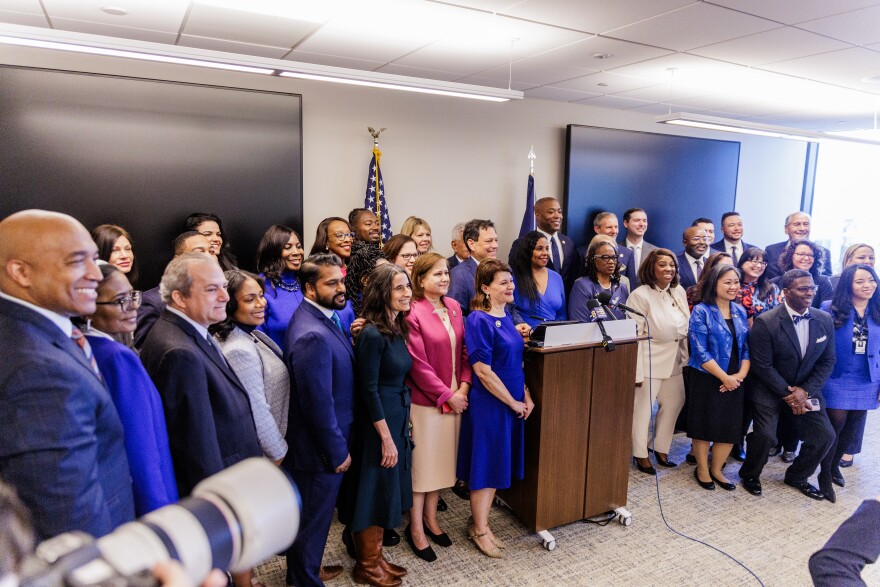Democrats who control the Virginia Senate made clear Wednesday they plan to continue the practice of stacking General Assembly committees with their own members in a proportion greater than their 21-19 majority.
The move disappointed some legislators and government observers, who had called on the chamber to adopt the practice of proportional seating. Senate Democratic leaders instead inched closer to fairness, improving what had been a wildly overrepresented split on some committees.
The situation is better, said Republican Sen. David Suetterlein, adding: "But it’s still not right.”
Committees are where much of the legislature's work is done, and disproportionate seating can weaken the voice of the minority and moderates who might buck the party line on any given issue.
Some panels last year were stacked 12 Democrats to 3 Republicans or 11 Democrats to 5 Republicans — despite the 22-18 majority at the time.
This year, with Democrats in 21 of 40 seats and GOP Lt. Gov. Winsome Earle-Sears casting tie-breaking votes, the splits are closer to the 8-7 that would be proportional, mostly 9-6 or 10-5.
Speaking on the floor, Senate Democratic Leader Scott Surovell defended the committee changes as “something for the good of the body.”

Chris Saxman, a former Republican delegate and the executive director of Virginia FREE, the pro-business nonprofit that called on the Senate to make a change, welcomed what he called “progress."
“But let's not kid ourselves — it’s not equitable. And they know it,” he said.
Virginia's House of Delegates seats its members in proportion to the overall partisan split of the body on all committees but one, a practice leaders of both parties said has served them well.
The Associated Press sought comment on the issue from all prospective legislative leaders ahead of the November elections, before party control of the chambers was settled. While senators from both parties indicated they saw value in proportionality or harm from the lack of it, none would commit to adhering to it.
“We reap what we sow. And down the line, it has become that way back and forth no matter who was in power,” GOP Sen. Bill Stanley said on the floor.
Wednesday marked the opening day of this year's 60-day session. Democrats now narrowly control both General Assembly chambers after flipping the House in the November elections.


